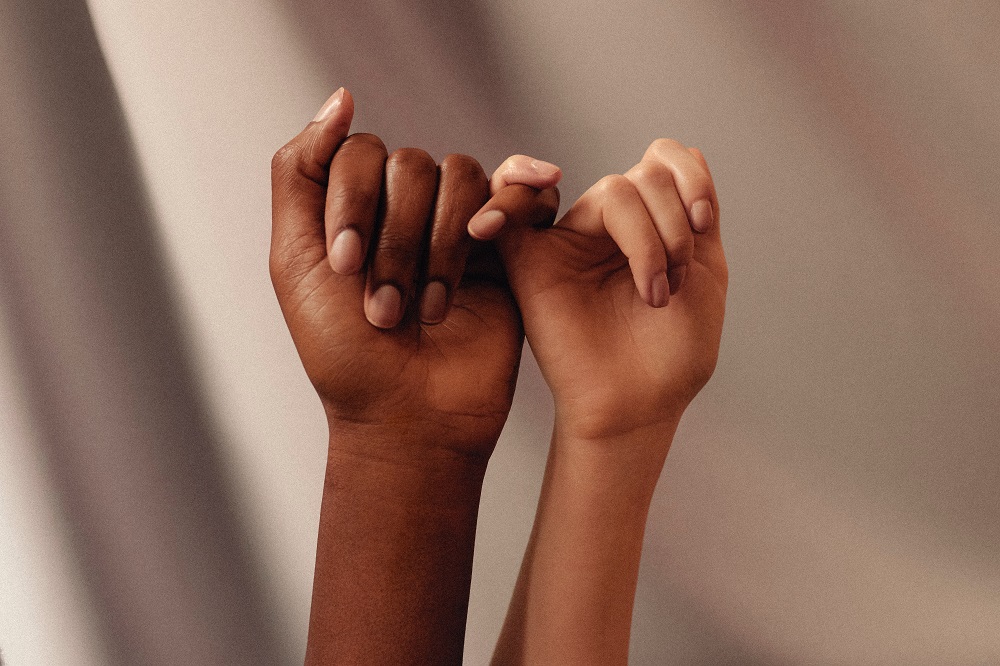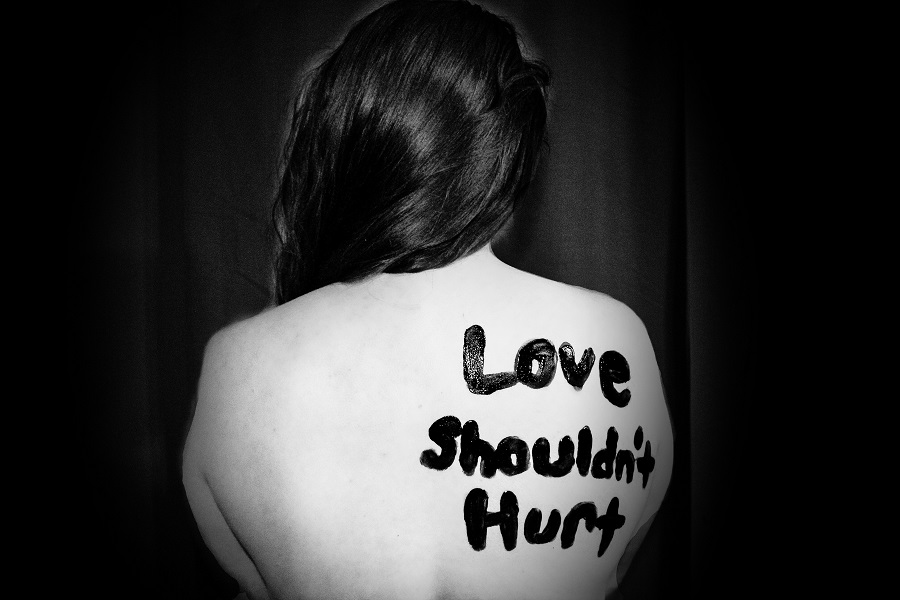

October is ‘Domestic Violence Awareness Month’ so we’ve built up this resource to help put a spotlight on the issue and share expert advice and resources. With two women per week killed through domestic violence related crimes, it’s clear that this is a very serious issue that needs to be talked about. So, it’s time to start talking!
Domestic abuse is often a hidden crime that is not reported to the police. Therefore, data held by the police can only provide a partial picture of the actual level of domestic violence experienced, and many cases will not enter the criminal justice process at all as they are not reported to the police.
Throughout lockdown, domestic abuse killings doubled, and calls to helplines surged by a horrifying 50% during the peak of the coronavirus pandemic – and more recent data has suggested that 16-24 year olds continue to be the ones most at risk, with Merseyside reporting the highest level of offences and domestic violence related killings in the whole of the UK.
So, if you have concerns about your own situation, or the situation of someone you love, please keep reading for some further information and resources that can help.
In this guide:
- What is domestic abuse
- Recognising domestic abuse
- Early warning signs
- Finding help for yourself
- Finding help for others
- Getting help to stop if you are the abuser
- Legal aid and advice
- Financial help
- Help if you don’t have settled status in the UK
- Domestic abuse and suicide
- Tech Abuse
- Resources and further advice
What is domestic abuse
Domestic abuse can be defined as any incident, or pattern of incidents, of controlling, coercive, threatening, degrading and/or violent behaviour, including sexual violence. In the majority of cases this is carried out by a partner or ex-partner – but it could also be by a family member or carer. Domestic abuse can include, but is not limited to:
- Coercive control (this could be a pattern of intimidation, degradation, isolation and control with the use or threat of physical or sexual violence)
- Psychological and/or emotional abuse
- Physical or sexual abuse
- Financial or economic abuse
- Harassment and stalking
- Online abuse
Domestic violence is very common, and studies suggest that in the vast majority of cases it is experienced by women and is perpetrated by men.
Recognising domestic abuse
Recognising and identifying domestic abuse can be difficult – particularly from the outside. Every situation is unique, and abuse may come in many different forms, from mental to physical.
However, thought every situation is different, there are some common themes that may help you to recognise if you, or someone you know, are in an abusive relationship:
Criticism and verbal abuse: this may include shouting; mocking; verbal threats; name calling; derogatory comments
Coercive tactics: this may include silent treatment until their needs are met; threatening to withhold money/internet/personal possessions such as mobiles, cars and computers; taking the children away; threatening to report you to the police, social services or the mental health team unless you comply with demands; suicide threats and lying to your friends and family about you
Disrespect: consistently putting you down in front of other people; not listening or responding when you talk, interrupting you, lying to you; withholding information from you; cheating; breaking promises and shared agreements.
Isolation: monitoring or blocking your phone, e-mails and social media accounts, telling you where you can and cannot go; preventing you from seeing friends and relatives; locking you in the house.
Harassment: following you; checking up on you; not allowing you any privacy, repeatedly checking to see who has phoned you; embarrassing you in public; accompanying you everywhere you go.
Threats: using physical size to intimidate; destroying possessions; breaking things; punching walls; wielding a knife or a gun; threatening to kill or harm you/the children/household pets
Sexual violence: using force, threats or intimidation to make you perform sexual acts; having sex with you when you don’t want it; forcing you to look at pornographic material; constant pressure and coercion around sexual activity; any degrading treatment related to your sexuality
Physical violence: punching; slapping; hitting; biting; pinching; kicking; pulling hair out; pushing; shoving; burning; strangling, pinning you down, holding you by the neck, restraining you.
Early warning signs
All couples have arguments, and all families disagree with each other from time to time – we’re all human and therefore we all have the potential to do things that we’ll regret that may cause unhappiness to those we care about. However, when this starts to become a pattern, it may be an indication of domestic violence and abuse.
When reading the list above, do any of these resonate with you? If so, even if it’s just one or two, you may be in a situation that would be considered unhealthy and even dangerous. For more clarity, please take a look at this short quiz provided by Women’s Aid that may help you to understand healthy and unhealthy behaviours in your partner a little better.

Finding help for yourself
The first thing we need to make very clear, is that: you are in an abusive relationship, it is not your fault.
Domestic abuse is a lot more common than you might be aware of, with 1 in 4 women, 1 in 6 men and 1 in 5 children in the UK reporting experiencing domestic abuse at some point in their lives.
For further information on recognising that you’re in an abusive relationship, and practical information about how to escape from your situation please click here.
Finding help for others
If you believe that someone you know may be in an abusive or unhealthy relationship, it can be a very difficult situation to navigate. Of course you want to help them, but you also may scared of overstepping the mark and losing them as a friend.
The best way you can help someone you believe may be in trouble, is to start a conversation. Here are a few tips to help you talk to your friend:
- Start the conversation on a positive note. Finding the time to talk to your friend in a one-on-one in a private setting, and giving them positive affirmations and complimentary statements, will help to make them feel safe. In a safe setting, they may feel more inclinced to share insights into their situation.
- Stay supportive. Be sure to let your friend open up their relationship on their own terms. Remember, discussing what’s going on might be very hard for them – so don’t be forceful with the conversation.Instead, remind them that they’re not alone and you’re there to help.
- Focus on unhealthy behaviours. By providing your friend with a safe space to talk about their relationship, you may have the opportunity to gently point out that certain behaviors seem unhealthy and be honest about how you would feel if you were in that situation too. This may be the first step in getting your friend to understand what is and is not an appropriate behavior in a relationship, and acknowledge that their feelings are legitimate.
- Don’t preach. Very few people in abusive relationships tend to recognise themselves as victims, and in most cases they will not want to be viewed as one. Make sure your conversation feels like an equal exchange between two friends, not like a therapist and a patient or a crisis counselor and a victim.
- Avoid blame. Throughout the conversation, try to help your friend to understand that the behaviours aren’t normal, and that it is NOT their fault. Many domestic abuse victims may feel personally responsible for their partner’s behavior, and believe they brought it on themselves – you need to assure them that this is not the case. Everyone is responsible for their own behavior, and no matter what the reason, abuse is never okay.

Getting help to stop if you are the abuser
Is your abusive behaviour costing you your relationship? It’s very easy to minimise your actions, make excuses or even convince yourself that what you’ve done ‘isn’t that bad’. But, if you are feeling guilty or ashamed about how you’ve behaved, or have been behaving, it’s not too late to get help and make some changes.
It can hurt to admit that what you have done isn’t ok, but by finding the courage to face up to what you’ve done and the effect it’s having on people you care about, you’re choosing to change. You’re choosing to take responsibility for your actions, and that is the first step to getting back on track.
For expert help on making these crucial changes, please contact Respect Phoneline, completely free of charge, for more information
Legal Aid & Advice
Paula Rhone-Adrien, UK’s leading brrister specialising in helping domestic abuse survivors, explains that obtaining legal advice is a daunting prospect for many, particularly when you are in such a vulnerable position – and where the perpetrator of abuse always seems to get their own way, at a cost or loss to you.
You might also have heard of the horror stories of some who have sought the protection from courts, only to suffer further abuse or feel as if the system continues to fail you in support of the perpetrator.
However, it is important for a survivor of abuse to know that lawyers and judges are very aware of these issues and are working extremely hard to combat it. There is effective help for survivors out there; for example the police and the Family Courts, who are both equipped with emergency powers to make immediate orders to protect a survivor, any children and their home – whether they legally own it or not.
Your local authority website is a great immediate source to sign post you to local advice which is free and practical in terms of helping you to plan your next steps to safety.
There are also legal charities like the Daisy Chain Project which works throughout the UK to support and represent survivors of domestic abuse in Family Courts throughout the country for free if you do not qualify for legal aid. Although where domestic abuse is a feature of your case, you may well be eligible for legal aid.
Related article: Leaving an Abusive Relationship with Children: What Are My Legal Options?
Financial help
Research tells us that across the financial spectrum: earnings, savings and pension; women severely lag behind men. However, we know that men also suffer from domestic abuse, and what all victims of abuse grapple with is financial coercive control.
Paula Rhone-Adrien explains that the perpetrator of domestic abuse uses control over the family finances to undermine, demean and diminish the victim. The perpetrator wants you to feel reliant on them and that you will be unable to survive without their superior decision making.
Of course this isn’t true, but your perpetrator has spent years in manipulating you into believing that they know how to manage the household, making you feel safe and cared for, whilst chipping away slowly slowly at your self esteem.
I always advise my clients to make appointments with different independent financial advisers (IFA’s). The first meetings are normally free and offer valuable opportunities for you to sit with someone who can help you understand how to save, budget and plan for your new life as a survivor. This is a step to you taking back control and is incredibly empowering.
Remember, you are not meant to know everything, that is why there are experts! Again, if you access the resources signposted on your local authority website, they too will be able to highlight free financial planning for the future.
Help if you don’t have settled status in the UK
Paula Rhone-Adrien, UK’s leading brrister specialising in helping domestic abuse survivors, explains that if you do not have settled status in the UK, then it may impact on your ability to obtain legal aid, however there are a number of different charitable options available to you, which means you will not slip through the net. Regardless of your immigration status you will still be able to seek the protection of the Courts, Criminal or Family to protect yourself, any children or the home you are residing in.
The Courts are not concerned about your immigration status, the simple question is what protection do you need? Lots of victims who are concerned about their immigration status tolerate abuse because they feel that they have too so they can secure their leave to remain. However, the only person who can answer that legal question is an immigration lawyer and NOT the perpetrator of abuse!
You can and should approach an immigration lawyer, they have to speak to you in confidence and so even if the perpetrator is supporting your application, they needn’t know about the plans you are making to leave until you have made an informed decision.

Domestic abuse and suicide
Whilst the fact that two women are killed under domestic abuse circumstances every week is truly horrific, perhaps even more troubling is the stark number of women who take their own life as a direct result of experiencing domestic abuse.
In a study conducted by Refuge, 24% of their clients had felt suicidal at one time or another, 18% had made plans to end their life and 3.1% had made at least one suicide attempt.
Domestic abuse is still too often seen as an issue of violence alone, but reports of the emotional trauma and mental health implications staying with victims long after cannot be ignored.
Data provided by Professor Sylvia Walby estimates that approximately one in eight of all female suicides and suicide attempts in the UK are due to domestic violence and abuse. This equates to 200 women taking their own lives and 10,000 attempting to do so due to domestic abuse every year in the UK. That’s nearly 30 women attempting to complete suicide every single day.
Tech Abuse
Ruth Davison, Refuge CEO, said “As we’ve grown more and more reliant on technology over the years, the opportunities to misuse technology have also grown. Tech abuse happens when a perpetrator of abuse harnesses technology to exert power and control over his current or former partner. This could range from an abuser sending endless abusive messages or calling non-stop, to hacking multiple devices and accounts to monitor and stalk an intimate partner.
In response to rising concerns about tech being used against survivors of domestic abuse, Refuge pioneered a specialist tech abuse team. The team provides in-depth support and safety planning to survivors of domestic abuse whose partners are misusing technology. Between April 2020 and May 2021, Refuge saw on average a 97% increase in the number of complex tech abuse cases requiring specialist tech support when compared to the first three months of 2020.
For any woman who may be experiencing tech abuse or knows someone who is, remember that you are not alone. You can find out more about tech abuse and how to keep yourself safe at RefugeTechSafety.org.uk. The site hosts accessible, step-by-step guides to securing your accounts and devices and a real-time, automated support tool.”
Resources and further support
- nationaldahelpline.org.uk
- safelives.org.uk
- mdvs.org
- sl-domesticabuseservices.org.uk
- womensaid.org.uk/domestic-abuse-directory
- Leaving an Abusive Relationship with Children: What Are My Legal Options?
- The long-awaited Domestic Abuse Act 2021: What it means for victims
- Surviving Abuse – the road to recovery and thriving
- The impact of domestic violence on children
- 10 signs you are in an abusive relationship & how escape from it
- 10 myths about abusive relationships
- Gaslighting in Relationships: How to Spot it and Shut it Down
With love, TDS team x

Just a group of real women dealing with life’s daily struggles! Want to write for us? Email: hello@thedailystruggle.co.uk